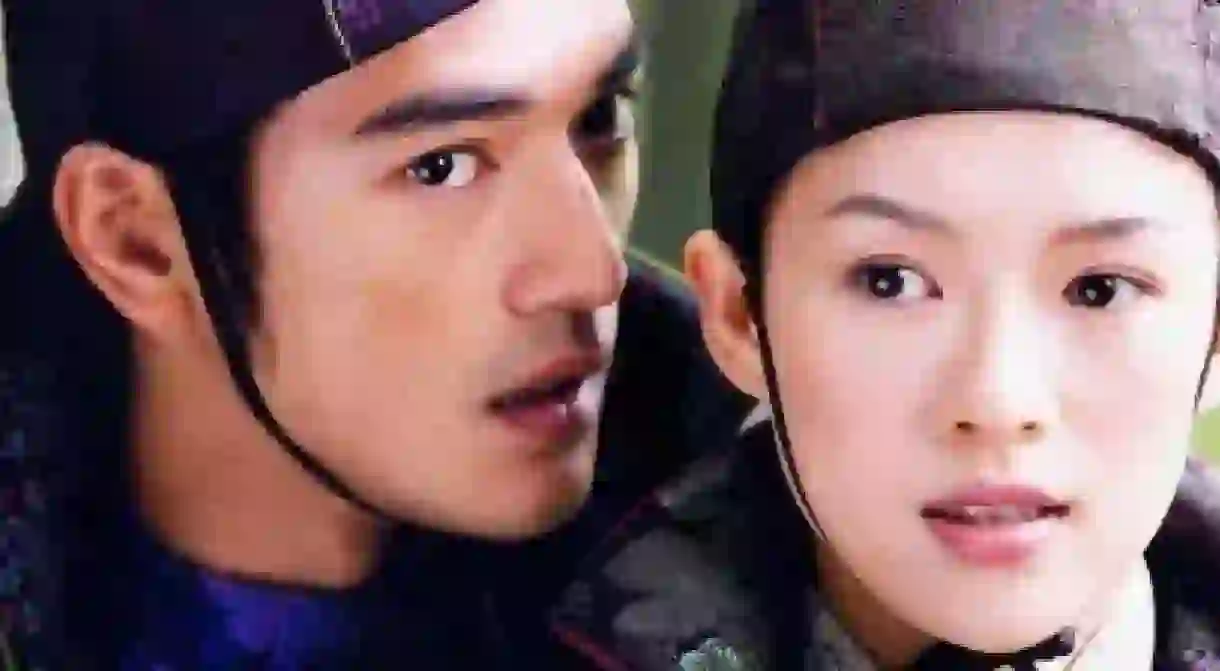Zhang Yimou: Choreographing Chinese Cinema

Zhang Yimou is one of China’s most celebrated film directors who has garnered praise both in China and abroad for films such as To Live, Raise the Red Lantern and House of Flying Daggers. In 2008, Zhang also directed the lavishly spectacular opening ceremony of the 2008 Beijing Olympics.
Amongst the most influential of Chinese directors, Zhang is one of several post-1980s directors whose lives and subsequent works were shaped by the Chinese Cultural Revolution. Others of the so-called ‘Fifth Generation’ include Chen Kaige and Tian Zhuangzhuang who, like Zhang, graduated from the Beijing Film Academy after university studies were resumed following a decade of widespread social and political upheaval during the Cultural Revolution.
Zhang’s early films such as Red Sorghum (1987) and To Live (1994) uncovered the deep human suffering of the Chinese people in the 20th century. At the same time, it also understatedly centred upon the perseverance and unshakeable will to live in spite of the trials and tragedy. Whilst the events of Red Sorghum, a film adaptation of Mo Yan’s acclaimed novel, take place during the Second Sino-Japanese War, the war itself is – until the latter part of the film – a backdrop to the quotidian drama of the character’s lives. To Live covers the period between the Chinese Civil War to the Great Leap Forward and the Cultural Revolution; persistent hardship is met with the central characters’ persistent struggle to press on. Zhang approaches this with a decidedly un-Hollywood realism, where both the heroic and the horrific are woven with the trivialities of everyday life. In addition, these early films show Zhang’s trademark usage of strong colours to set the tone for each scene. They also show his productive collaboration with his muse, actress Gong Li in roles that launched her international career.
Whilst films like Raise the Red Lantern, Red Sorghum andTo Live are based within the history of modern China, Zhang is equally acclaimed for his spectacular blockbuster martial arts films like Hero and House of Flying Daggers. Both of these films feature a star studded cast with the likes of Zhang Ziyi, Jet Li and Takeshi Kaneshiro. Although diverging in tone and subject from Zhang’s more subtle, historical works, he applies his cinematographic vision to these films to create highly aestheticised films in which fight scenes are transformed into elegantly choreographed dances.
For the 2008 Beijing Olympics Opening Ceremony, Zhang brought his aesthetic vision and meticulous choreographing to the live stage on a global scale. Held at the Beijing National Stadium, or ‘Bird Nest’, Zhang drew deeply from millenia of Chinese history, culture and tradition to symbolically showcase China’s reemergence on the world stage. Highlights of the ceremony included Chinese ink painting, the Analects of Confucius, the Terracotta Soldiers and a spectacular – and controversial – fireworks sequence designed by Chinese contemporary artist Cai Guoqiang.
Zhang’s works, whether on film or on the live stage, reveal the director’s acute sensitivity for the powers of storytelling and an ability to evoke powerful responses through subtle manipulations of sound and colour. At the centre of Zhang’s most powerful works is the simple story of human perseverance and resilience.













